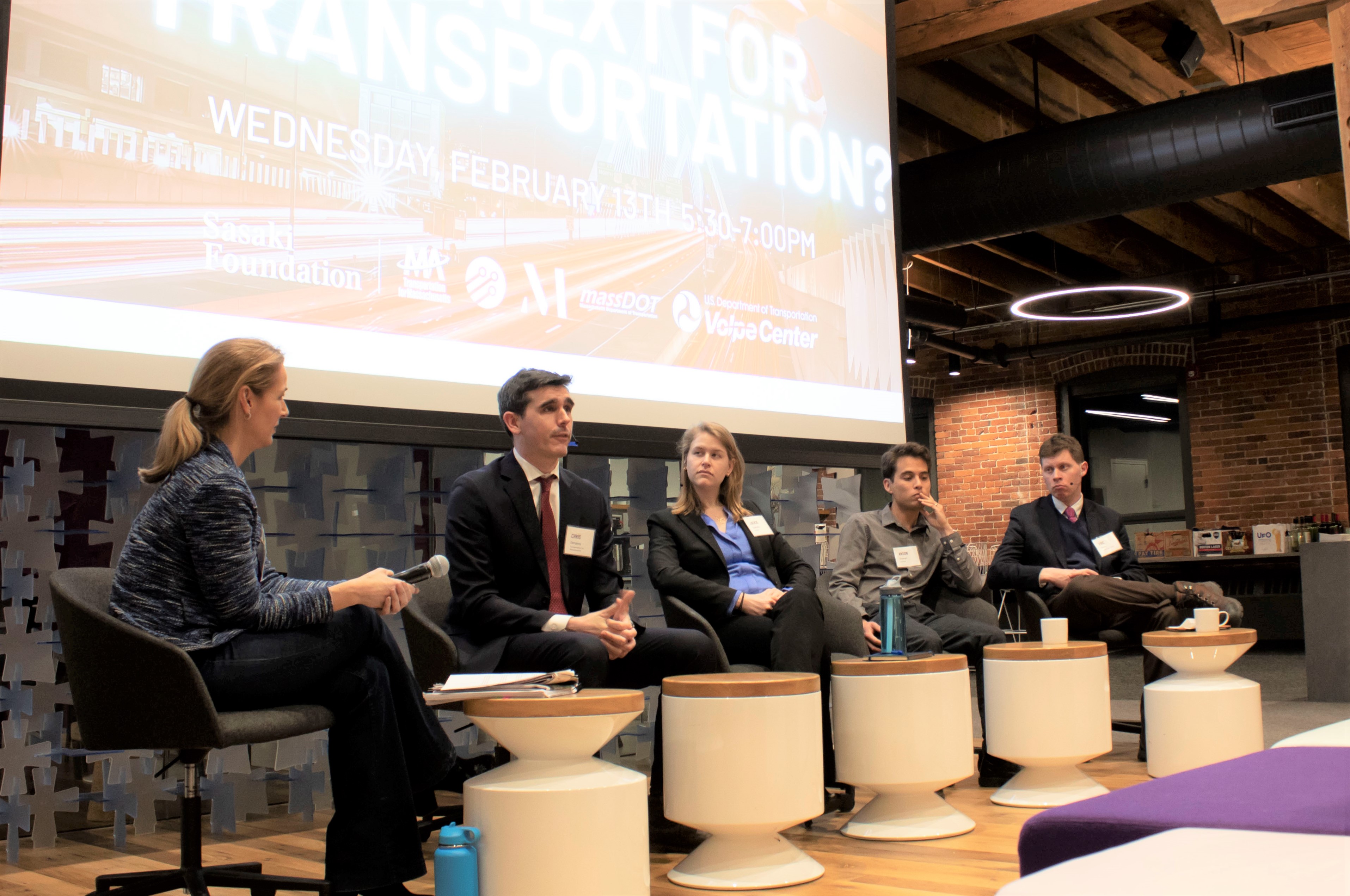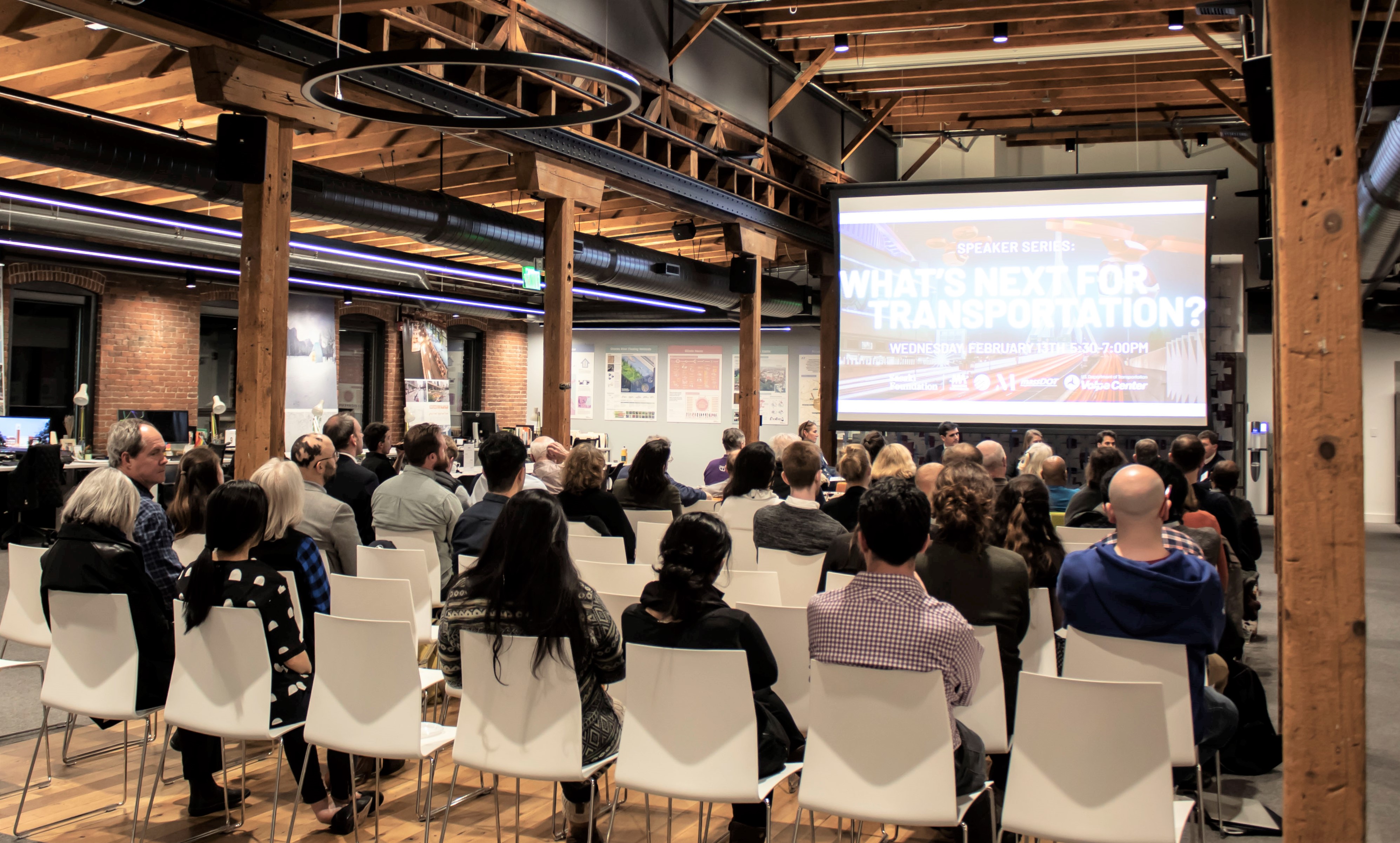February 27, 2019
What’s Next for Transportation?
Stephanie Crimmins, CEO of Volvo Car Mobility US
From autonomous driving and Mobility as a Service to elevated transit systems and congestion taxes, the future of transportation is top of mind for city leaders, CEOs, and citizens on a global scale.
On February 13th for their first speaker series of 2019, the Sasaki Foundation hosted a conversation on the future of transportation in Massachusetts. Panelists from both private and public sectors discussed a variety of topics, including equity issues and how different options impact businesses and communities across the state. Central to this discussion was the recent report from Governor Baker’s Commission on the Future of Transportation in the Commonwealth.
One recommendation from the report—to modernize existing state and municipal transit to alleviate congestion—was paramount to our panelists: “Fundamentally, if you care about transit, you should care about congestion”, said Chris Dempsey, Director of Transportation for Massachusetts.
“Think about the #111 bus,” explained Chris. “It’s 2.7 miles from downtown Chelsea to downtown Boston. The demand is so great that the MBTA runs buses every 4 minutes… Those buses can take 45 minutes to go 2.7 miles, which is an average speed of less than 4 miles per hour. From downtown Chelsea to downtown Boston you could walk faster than that, except it’s illegal to walk over the Tobin Bridge. We force folks to pack in…and effectively their bus is blocked by people taking their own cars. That’s an enormous inequity.”
Anson Stewart, speaking on behalf of Conveyal, reinforced this issue: “The number of Americans who are behind more than three months on their auto payments has reached the highest number ever – 7 million people. That reflects the fact that so much of our economy and urban regions have been built around the fact that you to get in a car to access a job. That’s what we need to transform.” Anson continued, “it’s important to think about investments in transportation but also in making sure people can live and work around those transit nodes.”

Panelists. From left, Stephanie Crimmins, Chris Dempsey, Jackie DeWolfe, Anson Stewart, Eric Plosky.

Audience, What’s Next for Transportation? event.
The Commission’s report also introduces initiatives to support new technologies at scale, including connected cars, autonomous vehicles, and electric vehicles (EVs). On this topic, our panelists discussed the importance of infrastructure to enable advancement.
Eric Plosky, Chief of Transportation Planning at the Volpe Center, commented on the increased popularity of EVs amongst consumers across the state. “The market share is still very small and there are many factors to consider when purchasing; however, the notion of consumer choice changing infrastructure is interesting.”
Jackie DeWolfe, Director of Sustainable Mobility at MassDOT, argued for thoughtful investments in infrastructure and highlighted the importance of climate resiliency in this work. “We can’t ignore what we have today, we need to re-balance what we have today and not simply put a band-aid over existing conditions…whether you’re digging or elevating or keeping at surface level”.
Throughout the evening, each of our panelists offered an inspiring range of ideas and ongoing initiatives to improve transportation for Commonwealth residents. As a member of the Advisory Council for the Sasaki Foundation, I look forward to continuing this conversation and supporting new mobility solutions to enrich our everyday lives.
